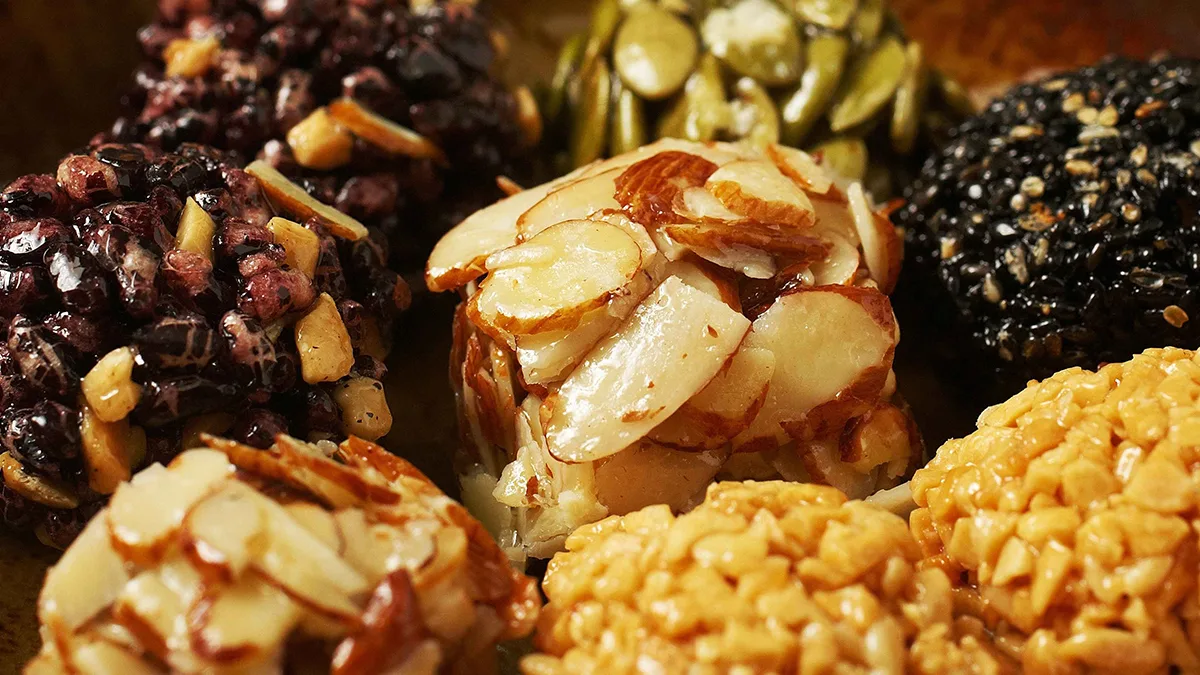No products in the cart.
Hangwa || Traditional Korean Sweets, 한과 1
Hangwa is a collective term for traditional Korean sweets. These confections have a rich history, dating back centuries, and represent a unique blend of artistry, culinary skill, and cultural significance.
A Tapestry of Flavors and Textures
Hangwa encompasses a diverse range of sweets, each with its own distinct characteristics:
- YuGwa: Deep-fried dough made from glutinous rice flour, coated in honey or syrup. Known for its crispy exterior and chewy interior.
- YakGwa: Similar to YuGwa, but made with wheat flour, resulting in a denser and crispier texture.
- Dasik: Powdered sweets made from finely ground grains like rice, beans, or nuts, often pressed into intricate molds.
- Jeonggwa: Candied fruits and roots, such as dried persimmons, ginger, and lotus root.
- Gangjeong: A variety of brittle snacks, often made with nuts or seeds coated in a sweet syrup.
More Than Just a Treat
Hangwa holds a special place in Korean culture:
- Rituals and Ceremonies: Hanwa is an essential part of traditional Korean ceremonies, such as ancestral rites (Jesa) and weddings.
- Cultural Expression: The intricate artistry and meticulous craftsmanship involved in making Hanwa reflect the Korean aesthetic and values.
- Sharing and Hospitality: Offering Hanwa to guests is a traditional way to express hospitality and respect.
Enjoying the Art of Hanwa
- Tea Pairing: Hanwa is best enjoyed with a cup of warm tea, such as green tea, ginger tea, or chrysanthemum tea.
- Seasonal Delights: Certain types of Hanwa are more commonly enjoyed during specific seasons.
- Modern Interpretations: Today, many artisans are experimenting with new flavors and presentations, while still honoring the traditional techniques.

This image is created using data from the Korea Tourism Organization's Photo Korea, which is open under the Public Domain License. You can download these images for free from phoko.visitkorea.or.kr. (본 이미지는 공공누리 제1유형으로 개방한 ‘한국관광공사 포토코리아'의 데이터를 이용하였으며, 해당 저작물은 ‘phoko.visitkorea.or.kr’에서 무료로 다운받으실 수 있습니다.)





















































https://en.wikipedia.org/wiki/Hangwa